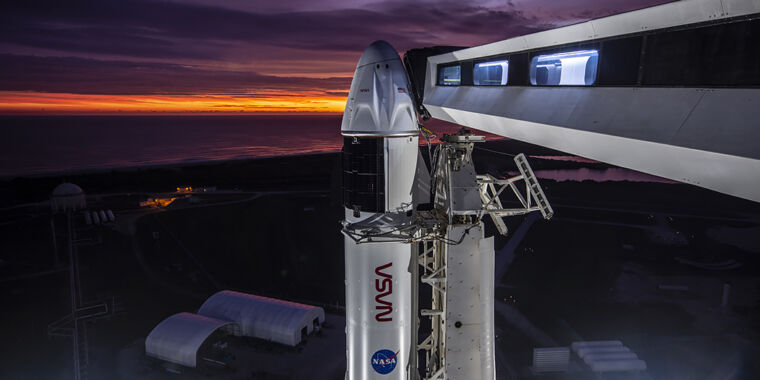- cross-posted to:
- [email protected]
- cross-posted to:
- [email protected]
Interesting comment from Jared Isaacman: https://x.com/rookisaacman/status/1815801469532266841
Its a good article, a few thoughts:
-
I don’t like monopolies, but why the sudden unease? The government buys all of its refueling tankers from Boeing, all of the main battle tanks from General Dynamics, all the aircraft carriers from Newport News shipbuilding, all of our air-to-air missiles from Raytheon. The government buys fighter jets from a duopoly that often provides reciprocal work-shares making them a monopoly. Historically, the government had no problem buying launch services from ULA and in fact had to be sued to prevent a continuation of that practice.
-
If SpaceX acts like a monopolist, then they will increase prices to levels that naturally stimulate more competition or risk antitrust actions. However, If SpaceX does not act like a monopolist and the government is getting the best product for the lowest price through open competitions, then what is the problem? As tax payers, we should want the best product/service for the lowest price and delivered as quickly as possible. We probably should not punish the few companies that are actually exceeding expectations.
I would love to see the government breaking up the monopolies that actually harm the competitiveness of the nation by failing to innovative and consistently come in over-budget and behind schedule and therefor have an allergy to fixed price contracting.
Yes, the US Government is locked into many monopolies, especially for highly specialized items.
That doesn’t make one more better at all though.
I disagree with his second point. We’ve seen for years now, that when companies act like monopolists, they become a successful monopoly. There is very little checks and balances here. Yeah, they risk antitrust actions, but those happen so incredibly rarely.
And in so far as competition, investment heavy industry like this needs billions in startup capital. Very few, if any, are going to get that.I will never shed a tear for Northrop, Lockheed, Boeing, etc losing contracts.
It comes down to experience and actually being able to build what’s needed. There just simple are not that many companies that can reliably ships, missiles, tanks, and spacecraft.
The government is obviously going to go with companies that can do it.
-
SpaceX’s bid price was $680 million. The source selection statement did not reveal a price for Northrop’s bid other than saying it was “significantly higher.” Based on NASA’s budget request, Northrop’s bid was likely approximately twice as high.
But SpaceX did not just win on price. Its “mission suitability” score, effectively its technical ability to design, develop, and fly a vehicle capable of deorbiting the space station, was 822, compared to Northrop’s score of 589. SpaceX’s approach had one weakness, compared to seven weaknesses in Northrop’s bid, according to NASA evaluators.
Finally, the selection was also based on past performance by the contractors. SpaceX’s performance was rated as “very high,” given how it has delivered with the Cargo and Crew Dragon spacecraft and its Falcon 9 rocket. Northrop’s performance on Cygnus and its various rockets was given a “moderate” rating. Overall, the NASA evaluators expressed a “very high level” of confidence in SpaceX being able to complete the mission, whereas a “moderate level” of confidence was expressed in Northrop.
Yeah, not seeing the problem here.
In short, only one company—SpaceX—is thriving in NASA’s commercial space ecosystem.
That is not a great position for the space agency to find itself in, so there are plenty of questions for NASA and policymakers. Do they cave to traditional space contractors and go back to cost-plus contracts for most services? (Slow and expensive.) Do they turn over many of their spaceflight functions to SpaceX? (Not desirable or politically practical.) Do they continue to hope and wait for other companies to make the next step? (The early returns are not great.)
As compared to the past, when NASA was doing all 3 at once?
Cost Plus contracting (including hybrids thereof) should probably be banned (in anything other than a war economy).
If companies can’t compete and that’s undesirable, subsidize them - but be up front about it.
One option would be to have them bid as normal, but then have central government pay X% of the money so that it doesn’t come out of the budget of the specific department (e.g. NASA), if the struggling company wins the contract. And so the department would be incentivized (and required) to treat the struggling company’s bid as if it was actually X% lower.
Keep increasing X until you’re satisfied with the level of dissimilar redundancy.
but then have central government pay X% of the money so that it doesn’t come out of the budget of the specific department (e.g. NASA)
In the implication here that it is Congress who want a diversity of suppliers, whereas NASA doesn’t care as much? That’s an interesting solution.
How would the X% be determined? Would it be the same for each company (except for the leader), or somehow proportional to how much the company is “struggling”?
In the implication here that it is Congress who want a diversity of suppliers, whereas NASA doesn’t care as much?
Yes, I think that’s the implication. I realized it’s not correct but decided to leave it like that. I’m a big picture kinda guy; someone else can sort out the details!
I guess it might be more like a combined NASA / Space Force high level strategic fund providing the subsidy. So that individual ‘low level’ programmes within NASA / Space Force then don’t have to worry too much about the long term strategic goals like dissimilar redundancy, and can mostly just focus on their own needs.
Stomped?
Meaning they won the contract by a large margin?
Or meaning they sabotaged the competition’s entry?
We should develop a culture of using precise language here. This headline is currently doublespeak because it means two different things at once.
They beat them in every metric evaluated by nasa
That would have been my bet on its meaning, but I hate when I can’t be sure, given how easy it is to make it clear.
Thank you.
I interpret the figurative use of the word “stomped” the same as I do for “wrecked” or “destroyed” or “annihilated”. Basically, ‘to beat easily/substantially’.
Do you have any examples of cases where it has been used to imply underhand behaviours? (Obviously if a SpaceX employee literally stomped on a competitor’s prototype, that would be an example! But I assume that’s not what you mean.)




